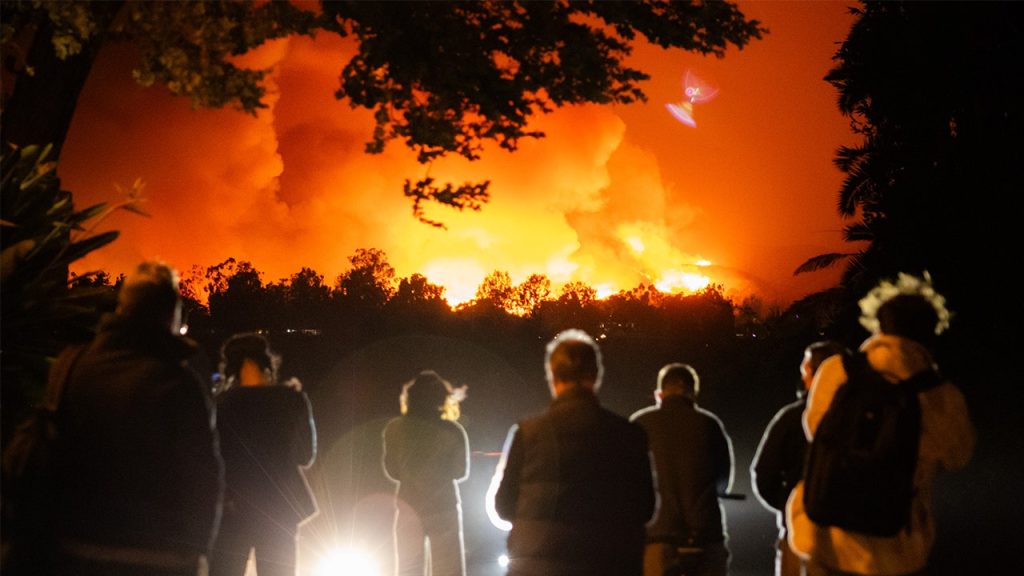The Escalating Threat Landscape and Security Response for Los Angeles Water Chief Amidst Wildfires
The backdrop of raging wildfires in Southern California has brought an unexpected and concerning development to the forefront: the assignment of a 24/7 police security detail to Janisse Quinones, the CEO of the Los Angeles Department of Water and Power (LADWP). This unprecedented measure stems from credible threats directed at Quinones and other DWP employees, highlighting the escalating tensions and potential dangers faced by public officials, particularly in times of crisis. The decision to provide Quinones with round-the-clock protection underscores the seriousness with which these threats are being taken by law enforcement and the LADWP. The heightened security comes as wildfires continue to ravage the region, straining resources and prompting public scrutiny of the city’s preparedness and response efforts.
The threats against Quinones and DWP employees are not isolated incidents, but rather reflect a broader pattern of increasing animosity and violence directed towards public figures and essential service providers. One source within the Los Angeles Police Department (LAPD) cited the recent shooting of United Healthcare CEO Brian Thompson in New York as a contributing factor to the decision to provide Quinones with security. This incident, among others, highlights the growing vulnerability of individuals in positions of leadership and the need for enhanced security measures to protect them from potential harm. The threats against Quinones and DWP personnel also coincide with public criticism of the city’s fire preparedness and water distribution strategies amid the ongoing wildfires.
The LADWP has confirmed the existence of threats against its employees, including incidents both in the field and at a DWP facility in downtown Los Angeles. While the specific nature of the threats remains undisclosed, the department emphasized that every threat is taken seriously and reported to law enforcement immediately. The LADWP declined to discuss specific security measures, citing the need to protect its employees. The department unequivocally condemned any threats against its workforce, emphasizing the crucial role they play in the city’s emergency response efforts and their integral place within the community. This underscores the importance of ensuring the safety and well-being of essential personnel, particularly during times of crisis, when their services are most critical.
The allocation of a police detail to Quinones, who reportedly earns $750,000 annually, has drawn attention amidst public scrutiny of her leadership and the LADWP’s handling of the wildfire crisis. Quinones has previously stated her commitment to viewing her position through an "equity lens" and utilizing it to advance social justice initiatives. This approach, while commendable in its intent, has potentially contributed to the polarization of public opinion regarding her leadership. The context of the wildfires and the associated challenges has further intensified scrutiny of her performance and the department’s overall response.
The assignment of a security detail to Quinones raises several important questions about the safety of public officials and the increasing need for security in the face of rising societal tensions. The threats against Quinones and DWP employees come at a time of heightened anxiety and uncertainty, fueled by the ongoing wildfires and broader concerns about public safety. The situation underscores the delicate balance between ensuring the safety of public officials and maintaining open communication and accessibility to the public. It also highlights the challenges of addressing public criticism and maintaining public trust, especially during times of crisis.
The situation surrounding Quinones and the LADWP serves as a stark reminder of the escalating risks faced by public officials and essential service providers. The threats and the subsequent security response highlight the need for vigilance and proactive measures to ensure the safety of those who serve the public, particularly during times of emergency. The ongoing wildfires in Southern California have not only brought devastation to the region but have also exposed vulnerabilities in public safety and the challenges of navigating public criticism and maintaining public trust in times of crisis. The case of Janisse Quinones and the LADWP serves as a microcosm of these broader societal issues and the need for ongoing dialogue and action to address them effectively.


